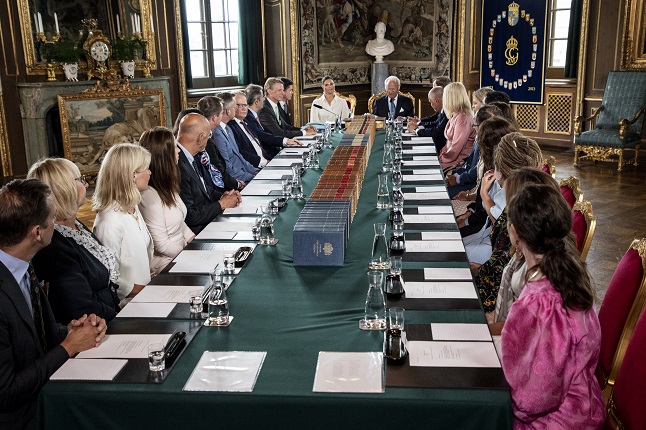Sweden does not currently have structures in place for a peacetime state of emergency, in contrast to some other European countries.
A committee made up of members of all eight parties in Swedish parliament will now investigate whether the constitution should be updated, following a government decision on Thursday.
“Sweden stands out. We have comparatively few powers [compared to other governments during peacetime crises],” said Justice Minister Morgan Johansson at a press conference announcing the investigation. He added: “These are sensitive issues, of course. How much power do you dare to hand to the government, even if there are crisis situations.”
Under Sweden’s existing framework, the constitution sets out which areas of policy and law must be decided on by parliament and which can be decided by the government. The government does not have any powers to bypass this, no matter how urgent the decision may be, outside of a war situation. If Sweden finds itself in a war or in danger of war, the parliament can be replaced by what is called a war delegation: the parliamentary speaker and 50 members of parliament.
Johansson said that the Covid-19 pandemic had highlighted how the lack of a peacetime crisis structure can slow down decision-making in times when moving quickly is vital, giving natural disasters or terrorist attacks as other examples where extra powers may come in useful.
For example, Sweden was able to pass a temporary ‘pandemic law’ giving the government extra powers, but this came into effect only after two ‘waves’ of Covid-19 had hit the country. Under that law, the government was able to impose limits on opening hours and visitor numbers in various businesses and environments without needing to go through parliament.
It’s not the first time that extra peacetime powers have been discussed in Sweden.
In 2008, another inquiry into the constitution made several proposals, including a state where the government would be allowed to make short-term decisions in areas that are usually up to parliament to decide, but the government at the time did not move forward with it.
The newly appointed committee has until November 23rd to carry out the assignment and present its report.



 Please whitelist us to continue reading.
Please whitelist us to continue reading.
Member comments